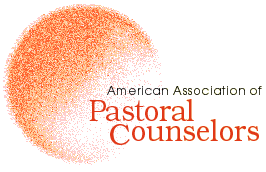 Frequently I’m asked about what a pastoral counselor is. Many folks are familiar with psychologists and social workers but pastoral counseling is less well understood. (Maybe that’s because the relative number of clinicians who have the extensive training to become a pastoral counselor is small in comparison to the number of other kinds of therapists,) Although clergy are the folks most people trust to talk problems over with, the profession of pastoral counseling is fraught with myths and misunderstanding. To increase understanding, here are some common myths that need to be burst.
Frequently I’m asked about what a pastoral counselor is. Many folks are familiar with psychologists and social workers but pastoral counseling is less well understood. (Maybe that’s because the relative number of clinicians who have the extensive training to become a pastoral counselor is small in comparison to the number of other kinds of therapists,) Although clergy are the folks most people trust to talk problems over with, the profession of pastoral counseling is fraught with myths and misunderstanding. To increase understanding, here are some common myths that need to be burst.
1. Pastoral Counselors aren’t real psychotherapists.
Many people think that professional pastoral counselors are just clergy persons who offer advice or are someone with whom to talk. While many do talk to their rabbis, priests , ministers or imams, pastoral counselors are professionals who are trained in theology and psychotherapy and who function in a specialized ministry of counseling. Their psychotherapeutic training is extensive and exceeds that of most other counseling degrees and also includes personal psychotherapy for each counselor as part of his or her training.
2. You have to be “religious” to see a pastoral counselor
While many who come to pastoral counselors come from a religious background or belong to a faith community, many others do not. Pastoral counseling embraces a holistic and inclusive perspective and is not guided by any particular theological doctrine or belief. While it may offer insight from the sacred texts of the world’s great religions, it also may borrow from literature, movies or even television shows to illumine a discovery. The perspective of pastoral counseling integrates a psychological understanding with the spiritual dimension of life. It is not only concerned with pathology or illness but is also committed to helping folks cope and find transcendent meaning in the midst of tragedy and loss.
3. You can’t really be yourself around a pastoral counselor.
Some worry that you have to watch your language when talking to a pastoral counselor or that you can’t talk about sex or other embarrassing topics. Many folks initially feel that they have to be careful when talking to a pastoral counselor in the same way they would with any clergy person. As they get to know their counselor, it becomes obvious that they can relax because the pastoral counselor is not there to judge or uphold any particular religious doctrine. The role of the pastoral counselor is to accept, understand and empathize with caring and concern. As trust develops, as with any other counselor, a person feels free to spontaneously express whatever is on his or her mind.
4. Pastoral Counselors can’t keep it real because they’re ministers and have to be proper.
Likewise, some worry that a pastoral counselor cannot understand because there is something that becoming a minister does that separates them from everyday human experience.
Not true. Pastoral counselors are married and divorced and have kids and experience the same emotions and suffer the same kinds of problems as anyone else. Indeed, being real (not pretend) for both client and counselor is what is needed for a successful therapy experience. What they offer, however, is a special perspective which is informed by the sacred texts and stories from the great religious traditions as well as from great literature and popular contemporary sources as well. Stories, whether they come from the Bible or Seinfeld have a way of illustrating human truth and providing a sense of purpose and meaning which goes beyond an immediate difficulty or fear.
Here is the bottom line: Pastoral counselors are able to use psychological tools as well as spiritual understanding to help folks heal from past trauma, recover from present emotional disorders or grapple with questions about the ultimate meaning of their lives.



